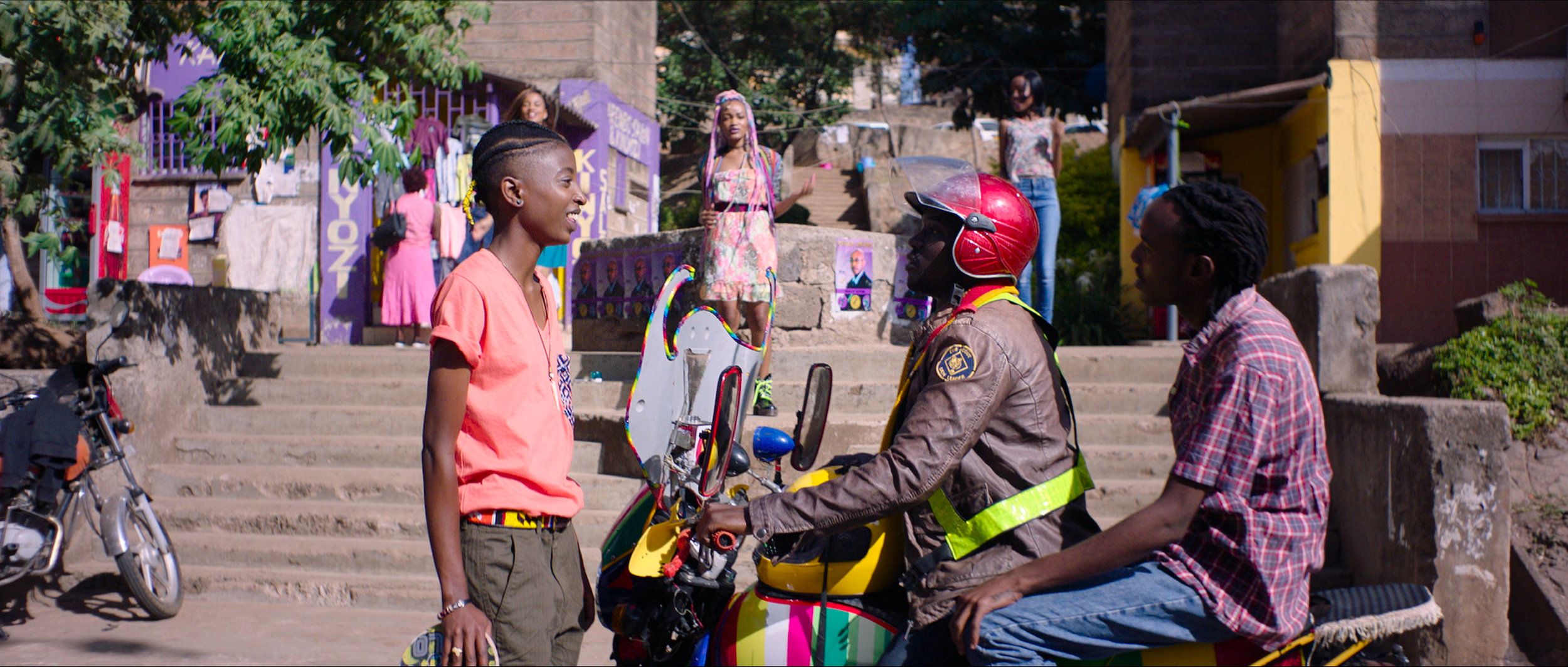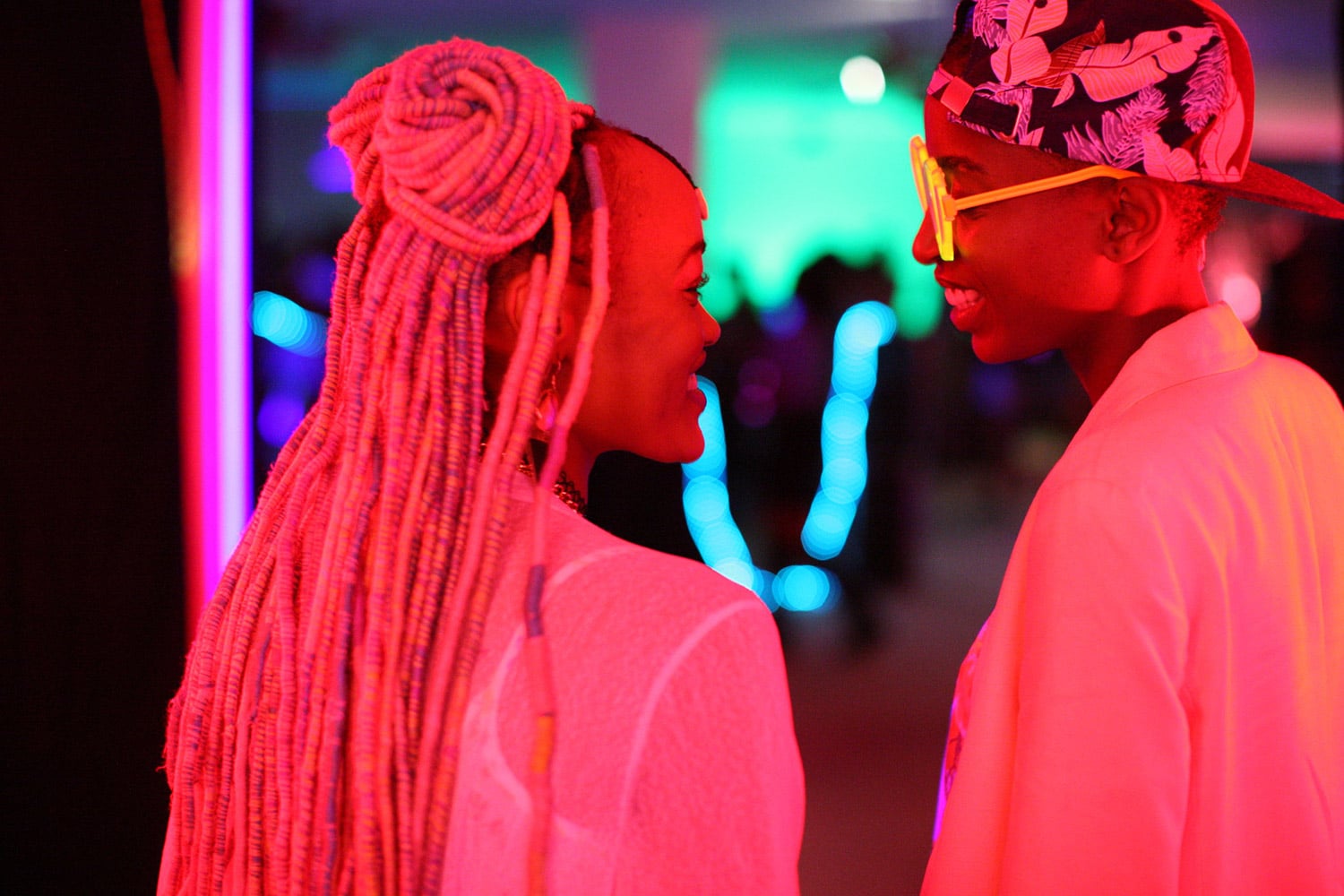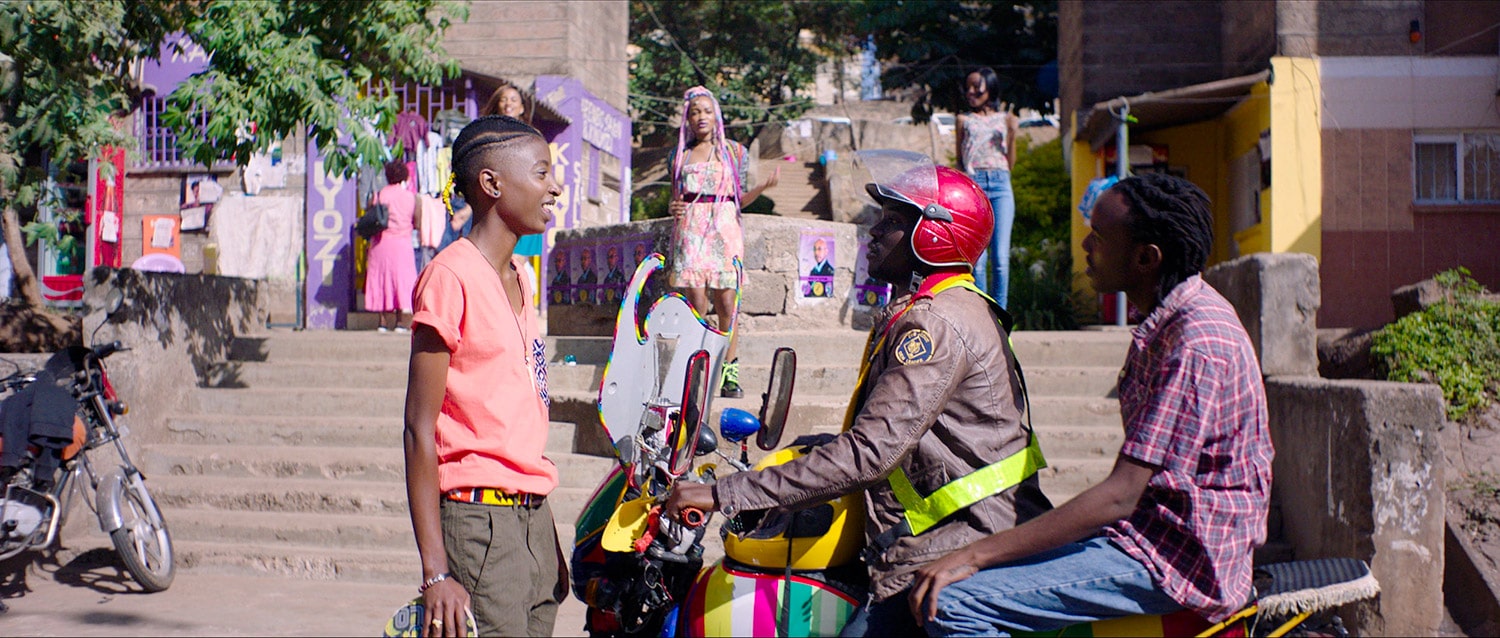
By Kevanté A.C. Cash
NAGB Correspondent
I am reminded of the challenges of life, even in moments of sheer bliss, reminded of the ways we cannot be, even in moments we are. I am reminded of the complexities of living in love a as Black, queer, artist, teacher, mother, sister, lover, friend, because it is all of these that comprise the human experience, yet none of these at all. I am reminded of themes of tried and proven love – over and over again in films such as Rafiki which in Swahili means “friend”.
I would argue that the title itself was an act of intentionality and irony, as African culture, at a minimum, does not acknowledge the simple existence of queer love, in such coding lovers in terms such as “friend”.
Above all of these though, I am reminded of just how boundlessly love can flow if given the space to manifest into something beautiful. Rafiki reminds me of the ways and trying times of love.

Stills from ‘Rafiki’, (2018).
Wanuri Kahiu, Rafiki’s director, knew exactly what she wanted viewers to feel and take away from this remarkable film, the earth-shattering realness of it all. And so, she did just that, firstly in showcasing the beauty of Kenya, a country whose name is often heard of or talked about usually in a negative light; secondly, in displaying a relatable forbidden love story regardless of whether or not one identifies as LGBTQ; and thirdly, in presenting queer love in a way that is honourable for kin-queer-folks and of the actors themselves. All of this is set in a place that feels a little too close to home.
In the beginning scenes, we are greeted with the lead character, Kena’s story. She is faced with the trouble of having to love two parents equally, but at arm’s length since it is difficult for her to show affection when one does not reside within the home. Kena’s father John, who we quickly discover has cheated on her mother with a younger woman, is campaigning in local elections and asks Kena to put his sins behind her and help him to campaign for the election while running his local convenience store too. Of course, this creates war when Kena takes a liking to Ziki, the colourful-coiffured creative who is the daughter of John’s political rival, Peter Okemi.

Stills from ‘Rafiki’, (2018).
Kena cannot deny the feelings she has developed for Ziki anymore as they continue to hang out and get to know one another Unfortunately for them, their familiar hang out spot is also where they run into the town’s main gossipers. Being unable to deny their chemistry but also aware of the detriment to their safety–since homosexuality is still an illegal act in Kenya–they find more meaningful ways to connect that eventually ends with Kena dropping Ziki off at her front door.
Within these moments, we encounter the legitimacy of it all–the falling in love, the insecurity and the unknowing. We also see how the shifting moments of life present themselves in many forms – the gossiping village women, the illegality of their love and their fathers being rivals. With a combination of such luck, could favour be anywhere in sight for the lovestruck pair?
We meet back at mid-point of the film where Kena and Ziki’s relationship is still going strong, but jealousy starts to invade their relationship as friends on the outside start to notice attentions shifts. This leads to a fist-squabble, and Ziki comes to Kena’s rescue and takes her home to patch up the wounds of this friend war. In the midst of this, Ziki leans in to share a kiss with Kena, but her mother catches them while randomly entering the room. Startled, they run out the house lock the mother in and make an escape.
Meanwhile, Kena is being inspired by a soul who is as carefree as she dreams to be. She has plans for becoming a nurse, but Ziki encourages her to set aspirations to become a doctor instead because she was “too smart to only be a nurse”. Ziki, herself, wants to migrate to be a singer in London and return to Kenya once she’s “made it.”. The young and idealist couple embody ‘relationship goals’ and personify the flower phrase of loving a thing enough to let it bloom/ They’ll have to keep this to heart when the walls of their relationship come crashing down.
As with all forbidden love stories, Ziki and Kena are caught holding each other by the town’s main gossipers and are dragged by an angry mob, thrown to the ground and beaten until they are bloody red and bruised. The young women are taken to the police station afterwards to wait on their parents to bail them out. This scene by all signs points to the end to their relationship… or so it would seem.
After having spent several years apart, accomplishing the things they have dreamed of – Kena, a doctor and Ziki, a travelling singer, reunite in a field overlooking the horizon with light from the sun downcasting on Kena’s face as she smiles at Ziki, her forever love.
Rafiki is a necessary and beautiful coming of age film to showcase during International Woman’s Month at the NAGB, and a fitting one as it reflects the likes of a nation similar to The Bahamas. It shows the interconnectedness of our Blackness and of our Black queer identities and shines a light the work we have ahead of us as we honour the many facets of our Blackness, even as we consider the fact that the film was banned in its own country of origin.
Rafiki comes highly recommended for all to see, Kahiu did a phenomenal job in delivering and adding a timely and bold narrative to the filmography of African and Afro-Caribbean cinema and culture.